Related Research Articles

A lesbian is a homosexual woman or girl. The word is also used for women in relation to their sexual identity or sexual behavior, regardless of sexual orientation, or as an adjective to characterize or associate nouns with female homosexuality or same-sex attraction. The concept of "lesbian" to differentiate women with a shared sexual orientation evolved in the 20th century. Throughout history, women have not had the same freedom or independence as men to pursue homosexual relationships, but neither have they met the same harsh punishment as homosexual men in some societies. Instead, lesbian relationships have often been regarded as harmless, unless a participant attempts to assert privileges traditionally enjoyed by men. As a result, little in history was documented to give an accurate description of how female homosexuality was expressed. When early sexologists in the late 19th century began to categorize and describe homosexual behavior, hampered by a lack of knowledge about homosexuality or women's sexuality, they distinguished lesbians as women who did not adhere to female gender roles. They classified them as mentally ill—a designation which has been reversed since the late 20th century in the global scientific community.
Patrick Califia is an American writer of non-fiction essays about sexuality and of erotic fiction and poetry. Califia is a bisexual trans man. Prior to transitioning, Califia identified as a lesbian and wrote for many years a sex advice column for the gay men's leather magazine Drummer. His writings explore sexuality and gender identity, and have included lesbian erotica and works about BDSM subculture. Califia is a member of the third-wave feminism movement.

Lesbian pulp fiction is a genre of lesbian literature that refers to any mid-20th century paperback novel or pulp magazine with overtly lesbian themes and content. Lesbian pulp fiction was published in the 1950s and 1960s by many of the same paperback publishing houses as other genres of fiction, including westerns, romances, and detective fiction. Because very little other literature was available for and about lesbians at this time, quite often these books were the only reference the public had for modeling what lesbians were. English professor Stephanie Foote commented on the importance of lesbian pulp novels to the lesbian identity prior to the rise of organized feminism: "Pulps have been understood as signs of a secret history of readers, and they have been valued because they have been read. The more they are read, the more they are valued, and the more they are read, the closer the relationship between the very act of circulation and reading and the construction of a lesbian community becomes…. Characters use the reading of novels as a way to understand that they are not alone."

Signs: Journal of Women in Culture and Society is a peer-reviewed feminist academic journal. It was established in 1975 by Jean W. Sacks, Head of the Journals Division, with Catharine R. Stimpson as its first editor in Chief, and is published quarterly by the University of Chicago Press. Signs publishes essays examining the lives of women, men, and non-binary people around the globe from both historical and contemporary perspectives, as well as theoretical and critical articles addressing processes of gendering, sexualization, and racialization.
Naiad Press (1973–2003) was an American publishing company, one of the first dedicated to lesbian literature. At its closing it was the oldest and largest lesbian/feminist publisher in the world.
Bella Books is a small press publisher of lesbian literature based in Tallahassee, Florida.
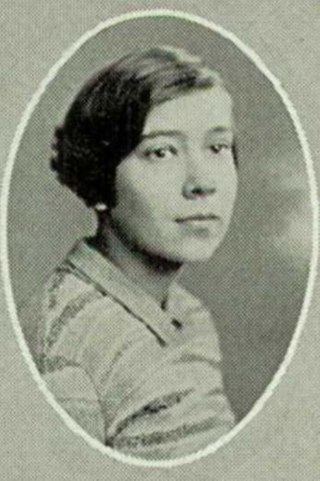
Valerie Taylor was an American author of books published in the lesbian pulp fiction genre, as well as poetry and novels after the "golden age" of lesbian pulp fiction. She also published as Nacella Young, Francine Davenport, and Velma Tate. Her publishers included Naiad Press, Banned Books, Universal, Gold Medal Books, Womanpress, Ace and Midwood-Tower.

Lesbian literature is a subgenre of literature addressing lesbian themes. It includes poetry, plays, fiction addressing lesbian characters, and non-fiction about lesbian-interest topics.
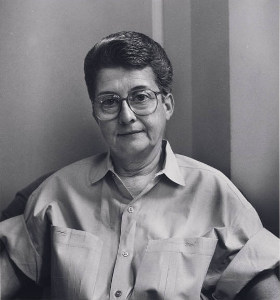
Barbara Grier was an American writer and publisher. She is credited for having built the lesbian book industry. After editing The Ladder magazine, published by the lesbian civil rights group Daughters of Bilitis, she co-founded a lesbian book-publishing company Naiad Press, which achieved publicity and became the world's largest publisher of lesbian books. She built a major collection of lesbian literature, catalogued with detailed indexing of topics.

Jeannette Howard Foster was an American librarian, professor, poet, and researcher in the field of lesbian literature. She pioneered the study of popular fiction and ephemera in order to excavate both overt and covert lesbian themes. Her years of pioneering data collection culminated in her 1957 study Sex Variant Women in Literature, which has become a seminal resource in LGBT studies. Initially self-published by Foster via Vantage Press, it was photoduplicated and reissued in 1975 by Diana Press and reissued in 1985 by Naiad Press with updating additions and commentary by Barbara Grier.
Karin Kallmaker is an American author of lesbian fiction whose works also include those originally written under the name Laura Adams. Her writings span lesbian romance, lesbian erotica, and lesbian science-fiction/fantasy. Dubbed the Queen of Lesbian Romance, she publishes exclusively in the lesbian market as a matter of personal choice.
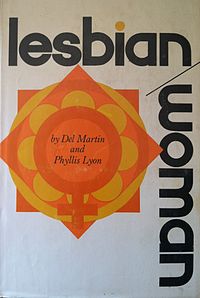
Lesbian/Woman is a work by the feminist and gay rights activists Del Martin and Phyllis Lyon, in which the authors discuss what it means to be a lesbian. The book was influential and is considered a foundational text of lesbian feminism. Reviewers believed that it benefited from its authors' personal experience as lesbians, and endorsed its criticisms of the treatment of lesbians by religious and professional organizations.
Feminist views on sexuality widely vary. Many feminists, particularly radical feminists, are highly critical of what they see as sexual objectification and sexual exploitation in the media and society. Radical feminists are often opposed to the sex industry, including opposition to prostitution and pornography. Other feminists define themselves as sex-positive feminists and believe that a wide variety of expressions of female sexuality can be empowering to women when they are freely chosen. Some feminists support efforts to reform the sex industry to become less sexist, such as the feminist pornography movement.
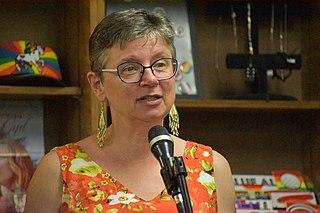
Lisa L. Moore is a Canadian-American academic and poet. She earned a B.A. in English with honors at Queen's University in 1986, and then completed her doctorate at Cornell University in 1991. Principal themes in Moore’s work include the centrality of love between women to literary genres such as the novel, the landscape arts, and the sonnet; the transatlantic and multi-racial history of feminist art and thinking; and the importance of poetry to second-wave feminist, womanist, and lesbian cultures and politics.
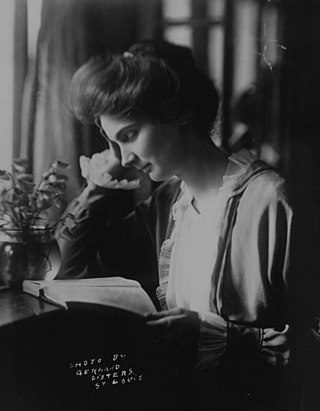
Clara Louise Thompson (1884–?) was an American educator, Latinist, activist, feminist, and suffragette. She is the only woman to be awarded the American Fellowship at the American School of Classical Studies in Rome.
Jill Posener is a British photographer and playwright, known for her exploration of lesbian identity and erotica.
Arlene A. Halko was an American medical physicist and gay rights advocate, based in Chicago. She was inducted into the Chicago LGBT Hall of Fame in 1996.
Dolores Klaich was an American feminist author, activist, teacher and journalist. She wrote about the social history of lesbians in the United States of America, and wrote a mystery novel that was nominated for the Lambda Literary Award for Lesbian Mystery. She taught sexual health and safety at State University of New York's School of Health, Technology and Management for a decade, and played a significant role in the first National Women's Conference as a delegate from New York.

Joanne Passet is an American historian, teacher, librarian, and writer. She is a professor emeritus at the University of Indiana, where she taught history, and previously, library and information science. She has two doctorates, and is best known for two biographies, one of publisher Barbara Grier, and the other, of writer Jeannette Howard Foster, both of which were finalists for the Lambda Literary Award for Lesbian Memoir or Biography in 2017 and 2008 respectively. She has won several awards during her career, including a Fulbright Scholarship and an award from the American Library Association.

Sex Variant Woman: The Life of Jeannette Howard Foster is a biography of Jeannette Howard Foster, a pioneer in lesbian studies, by American historian Joanne Passet. It was published in 2008 by Da Capo Press. The book includes a foreword by Lillian Faderman.
References
- ↑ Foster, Jeannette H. (1985). Sex variant women in literature. Tallahassee, FL: Naiad Press. ISBN 0-930044-65-7. OCLC 12039326.
- 1 2 3 4 Schwartz, Michelle; Crompton, Constance (2018). "Chapter 9 Remaking History: Lesbian Feminist Historical Methods in the Digital Humanities". In Losh, Elizabeth; Wernimont, Jacqueline (eds.). Bodies of Information: Intersectional Feminism and the Digital Humanities. University of Minnesota Press. pp. 134–135. ISBN 978-1-4529-5858-3.
- ↑ Passet, Joanne Ellen (2008). Sex variant woman: the life of Jeannette Howard Foster. Cambridge, MA: Da Capo Press. ISBN 978-0-7867-2154-2. OCLC 609316699.
- 1 2 Rupp, Leila J. (June 2009). "Reviewed Work: Sex Variant Woman: The Life of Jeannette Howard Foster by Joanne Passet". The American Historical Review . 114 (3): 776. ISSN 0002-8762.
- 1 2 Vicinus, Martha (January–February 2009). "Of Her Time and Ahead of It". The Women's Review of Books . 26 (1): 22–23. ISSN 0738-1433.
- ↑ Stimpson, Catharine R. (1981). "Zero Degree Deviancy: The Lesbian Novel in English". Critical Inquiry . 8 (2): 363. ISSN 0093-1896.
- ↑ Carmichael, James (2000). "'They Sure Got to Prove It on Me': Millennial Thoughts on Gay Archives, Gay Biography, and Gay Library History". Libraries & Culture . 35 (1).